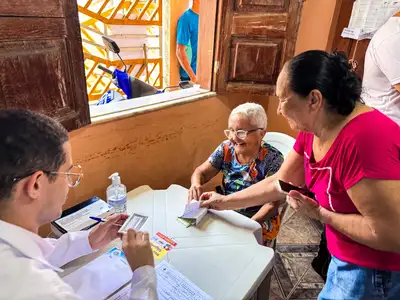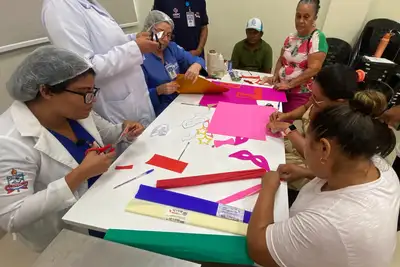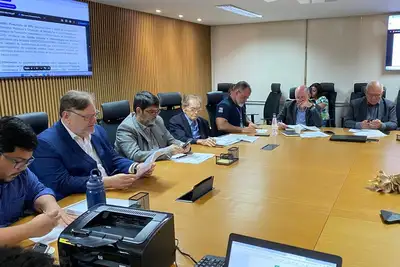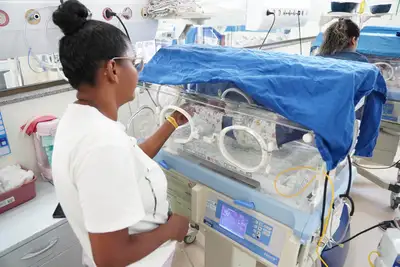Transamazon Hospital is a reference in hemodialysis in southwestern Pará
Health unit ensures vital and humanized treatment for renal patients
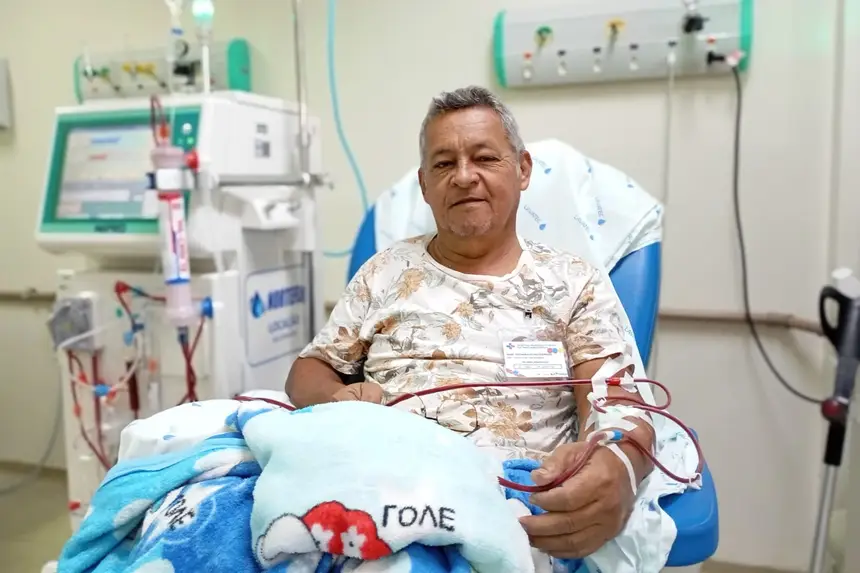
José Maria do Vale Reis has been on dialysis for eight years. Due to the treatment, the now-retired man had to abandon his profession as a taxi driver and focus on health care. “The treatment here is good, thank God we are well attended. I can’t even imagine a city like Altamira without a hospital like this one,” says José about the Transamazon Regional Public Hospital (HRPT) in Altamira, southwestern Pará.
In hemodialysis, machines replace or assist the kidneys in filtering toxins that the patient's body stops eliminating naturally or has difficulty performing the vital function.
The same routine is faced by Igor Gustavo Paes dos Santos. A Systems Analysis student, Igor undergoes hemodialysis three times a week. “At first, it was difficult because I was weakened, with all the indicators bad, but over time my body adapted. Overall, I come here, do the dialysis, and go home feeling good. When I have questions and ask, they help me,” said the young man who is awaiting a kidney transplant.
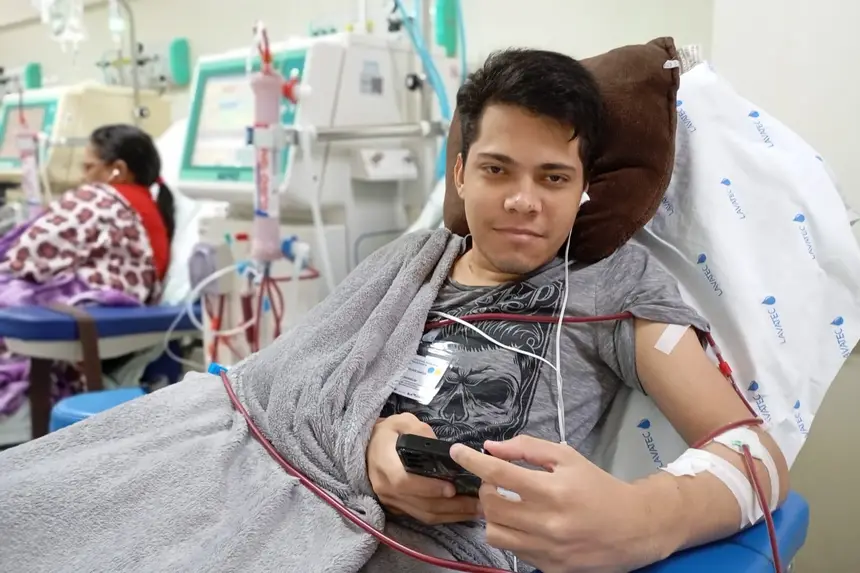
Transamazon Regional Hospital (HRPT) in Altamira is the only one with hemodialysis
To ensure that the patient feels comfortable, even while in a hospital, the care has humanization as the necessary tool. Flávia Viel, coordinator of Nephrology services at HRPT, explains that “the hospital carries the obligation to maintain excellence in humanized work, regardless of the sector. In our entire region, hemodialysis is only found here. We serve nine municipalities with excellence.”
Hemodialysis patients are divided into two profiles: inpatients, those admitted to the unit; and outpatients, who do not need hospitalization. In the first case, as soon as the admission is made, the person also undergoes a series of tests, and if they present renal problems requiring dialysis, the procedure is applied. In the second case, the patient is referred by the Renal Replacement Therapy (TRS), a program of the Ministry of Health responsible for registration and monitoring.
“The responsibility is great because we create affection with the patients, as if they were family. We are responsible for offering the solution to the problem they have when they arrive at the hospital and for returning them healthy to their families. Perhaps this is our greatest responsibility today,” emphasizes coordinator Flávia Viel.
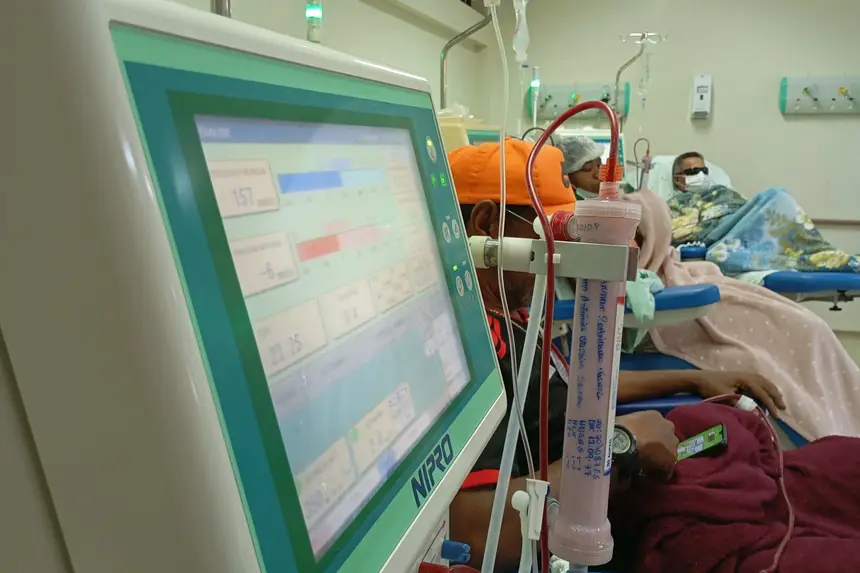
Why kidneys can fail
In Brazil, one in ten people has some type of chronic kidney disease. The condition arises when the organ stops functioning properly and gradually loses its ability to filter blood and eliminate toxins. Many cases are so aggressive that the kidneys can stop completely and even lead the patient to death. Therefore, hemodialysis, offered in hospitals like the Transamazon Regional Hospital, is one of the most important treatments in the public system. But are there specific factors that cause harm to the kidneys and, consequently, to humans?
Nephrologist Eduardo Anjos from the Transamazon Regional Hospital highlights the main conditions that compromise the so-called filters of the human body. He also presents solutions that can be applied in daily life, starting with a good night's sleep.
He emphasizes, for example, inadequate sleep, when a person sleeps less than 6 hours, with the ideal being 7 to 9 hours. “Most hormones are produced at night. If a person does not have adequate sleep and wakes up rested, they will start to have pressure problems, weight gain, chronic fatigue. Everything disrupts the overall health of the person.”
The doctor states that excessive eating can be harmful to health. He talks about the risks when one “has an unregulated diet with too much salt, sugar, excessive protein without adequate hydration, and excessive carbohydrates as well.” It is recommended to re-educate eating habits and, if necessary, seek specialized nutritional guidance;
“Physical activity is essential to complement the three pillars of a healthy person to maintain weight, help with adequate sleep, and avoid future problems in the musculoskeletal area, especially when we start to have a decrease in muscle mass,” says the nephrologist.
Tobacco is one of the main threats to the kidneys. “If a person has the habit of smoking, they should quit smoking immediately, as it leads to various problems, such as hypertension, higher risks of acute heart attack, stroke, vascular ischemias, which can lead to amputations of fingers and limbs.”
He also advises that even in cases of non-hypertensive and non-diabetic individuals, “the combination of these guidelines: adequate sleep, healthy eating, physical activity, and cessation of smoking, should be accompanied by monitoring of blood pressure and blood sugar,” states Eduardo Anjos, who always recommends seeking professional help in case of doubts about conditions that can lead the kidneys to serious problems.
Text by Rômulo D’Castro



